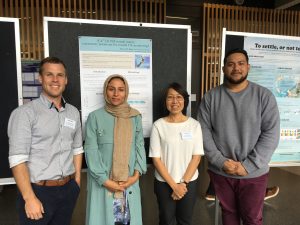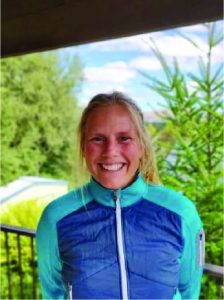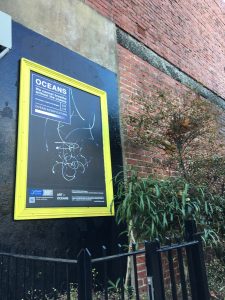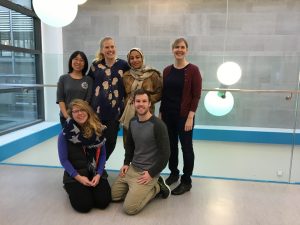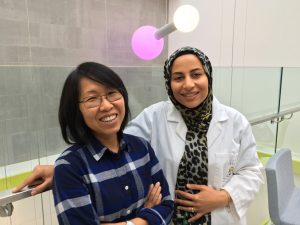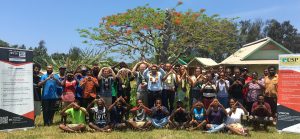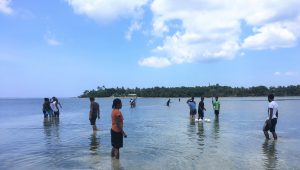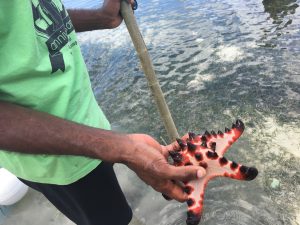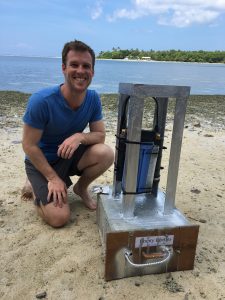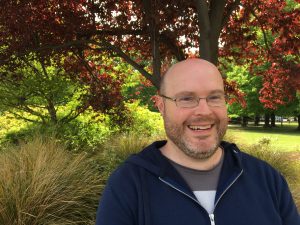Summer 2019/2020
It was a busy summer in the McGraw group, which began with December’s announcement that Maserota, Rebecca and Wayne were each awarded Otago Ocean Acidification Research Theme funding to support new aspects of their research!
After well-deserved summer holidays, the group traveled to Wellington in February for the 13th annual New Zealand Ocean Acidification Conference. Denise gave an oral presentation on her latest optical fibre sensors; Christina spoke about MEDDLE resources and led a post-conference experimental design workshop for early career scientists. Three students gave poster presentations about aspects of their work: Habibeh (ship-board DMS sensor), Wayne (marine calcium) and Maserota (autonomous device for high frequency pH monitoring in Samoa).
We were sad to say goodbye to Rebecca, who started an exciting post-doc position at the Royal Netherlands Institute for Sea Research. However, this loss was balanced by addition of three new group members (Elliot, Grace and Alice) and visits from Jon Havenhand (University of Gothenburg) and Christopher Cornwall (Victoria University of Wellington).
Finally, the Otago Daily Times confirmed what we all suspected: Maserota has the best flatmates.
Anna’s copper speciation article
Congratulations to Anna, whose article Chemical speciation models: simplifying the complexity of the ocean was published in the NZIC’s latest issue of Chemistry in New Zealand. This article was related to her BSc work at the University of Gothenburg (Sweden), where she studied natural organic ligands and the chemical speciation of copper.
Proof of Concept competition (July 2019)
Congratulations to Wayne, whose ocean acidification sensors was one of four highly commended projects at the 2019 Otago Innovation Proof of Concept competition.
In addition, his work towards commercialisation, has led to his appointment on the Otago Momentum investment committee which “which provides access to world class advice, connections, and investment opportunities to students and start-ups across New Zealand.” The launch of the committee was covered in the Otago Daily Times.
Conferences, art and a goodbye (July 2019)
July was a busy months for the McGraw group!
Denise Chen, Wayne Dillon and Habibeh Hashemi presented their newest sensors at the 2019 NZ Marine Sciences Society Conference in Dunedin in July. Congratulations to Wayne, who was awarded the MPI Prize for the “student poster making the best use of quantitative methodology”.
Our group’s research was highlighted in posters hung around the city for 2 weeks in July. As part of the Arts + Ocean project, Christina worked with fibre artist Hope Duncan, who made a beautiful jellyfish sculpture inspired by our lab’s work developing sensors for ocean acidification. The posters, which included photographs from the Arts + Ocean exhibition, highlighted the importance of the oceans.
Finally, in spite of the smiles, we were sad to see Anna return to Sweden after a wonderful year in New Zealand.
Best Practices Workshop in Monaco (June 2019)
In June, Christina traveled to France and Monaco. In France, she co-led a pre-conference workshop (Setting priorities for research into changing ocean biological systems) and co-chaired a session (Multiple drivers and their role in ocean global change biology) at the Integrated Marine Biosphere Research (IMBeR) Future Oceans2 conference.
After IMBeR, she travelled to Monaco, where she led a 5-day International Atomic Energy Association (IAEA) workshop on Best practices for ocean acidification experiments in multi-stressor scenarios. It was a great opportunity to share MEDDLE resources with early career researchers from around the world.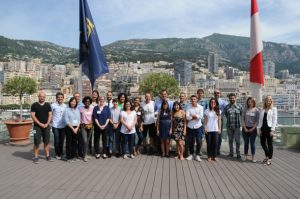
Otago OA Research Theme (March 2019)
Congratulations to Denise Chen and Habibeh Hashemi, who were each awarded research funds through the University of Otago Ocean Acidification Research Theme!
Denise will continue her work developing new materials for optical microsensors. Habibeh will begin to adapt her lab-based dimethyl sulfide sensor into a ship-board system.
The groups also welcomes Maserota Ofoia, who just started his MSc.
Ocean Acidification in New Zealand (February 2019)
February was an exciting month for the Research Group!
- The Commonwealth Ocean Acidification Action Group Workshop (co-chaired by Christina) was held at the University of Otago from 17 – 19 February. This technical workshop included government officials and international experts on OA science and policy from 17 Commonwealth countries – Antigua and Barbuda, Australia, Cook Islands, Fiji, Ghana, Kenya, Mauritius, Mozambique, New Zealand, Samoa, Seychelles, Solomon Islands, South Africa, Tonga, Tuvalu, UK, and Vanuatu – and the USA. This workshop was the first step towards bringing Commonwealth Countries together to share knowledge to better understand and address the impacts of ocean acidification.
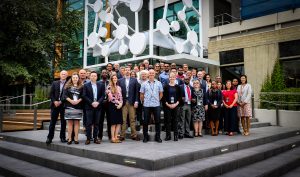
- Anna, Denise, Habibeh, Naomii, and Wayne each presented their research at the 12th Annual New Zealand Ocean Acidification Workshop, held in Dunedin from 20 – 19 February.
- Some of our research was highlight in Stuff!
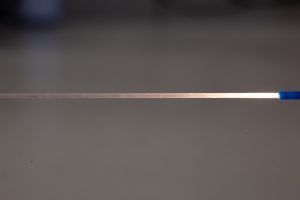
Fieldwork in Vanuatu (Dec 2018)
Christina and Wayne just returned from Vanuatu.
With the support of The Ocean Foundation and in collaboration with Dr. Krishna Kotra (The University of the South Pacific, USP), we set-up USP’s ocean acidification (OA) laboratory and helped deploy Vanuatu’s first OA monitoring system.
About 30 USP students, technicians and members of the community contributed to the project.
The instruments are deployed in Erakor Lagoon, using instruments Krishna received through the “GOA in a box” programme.
The instruments were deployed on an anchor built by USP technicians using a repurposed cabinet drawer. Here, you can see Wayne’s newest sensor (blue box), which he deployed alongside the iSAMI pH sensor (black cylinder) from the GOA-ON kit.
Thank you to The University of the South Pacific, The Ocean Foundation, GOA-ON, Dr. Krishna Kotra, and all of students, technicians and community members who contributed to this project.
Chris Cornwall’s visit (Nov 2018)
Chris Cornwall, an ecophysiologist and Rutherford Fellow at Victoria University of Wellington, visited our lab this week. We spent the week testing Wayne and Anna’s new seawater sensors with Chris’s favourite coralline algae.
Chris is pretty excited to be in Dunedin – it is the first time he’s had this much fun with chemistry!

